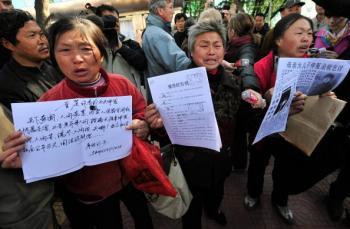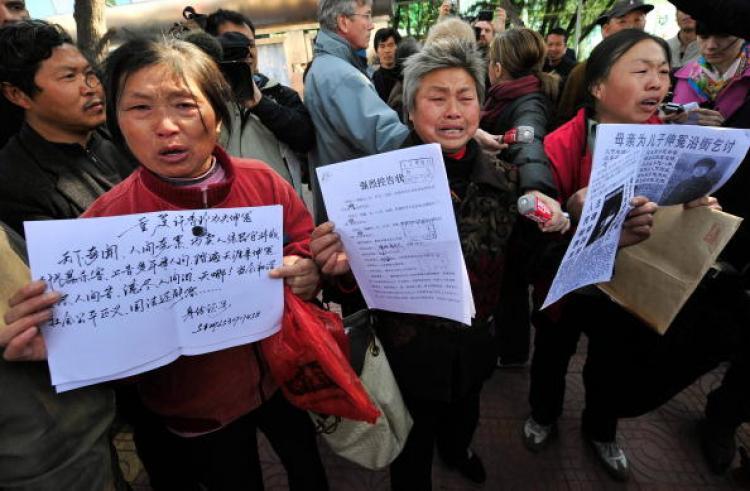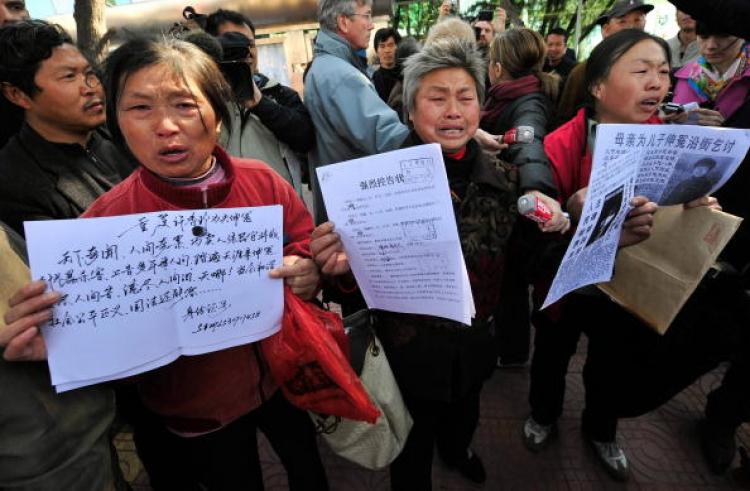‘They treat us like we are the enemy’
Chinese petitioners, who have been under increased suppression since the start of the Beijing Olympics, predict that the situation will only get worse after the Games.
During the Olympics 22 petitioners were illegally detained in China’s Liaoning province. The petitioners were being held in the basement of the Hunbei Ecological Hotel in the Tiaxi district, said petitioner Li Sufen.
Ms. Li, who lives in Shenyang, the capital city of Liaoning, has petitioned the government for 18 years. Despite having promised her local government not to petition or cause trouble during the Olympics, she was still arrested at her home on the eve of the opening ceremony.
According to Ms. Li, detained petitioners are under 24-hour surveillance by public security officers, special police, security guards and staff from the Bureau of Justice. She said some of the petitioners are on hunger strike, some are trying to get help from the outside and some have slit their wrists to commit suicide in order to escape their suffering.
Prior to the start of the Games four other Chinese nationals who sought to petition the government were tracked down by authorities using Global Positioning Systems (GPS) in Beijing on July 27. Wang Shengfang and Zhao Laidi from Shanghai and Zhu Yumei from Jiangsu were arrested. The fourth petitioner, Zhou A’gen, narrowly escaped arrest as he was out at the time.
Mr. Zhou said authorities from the Beijing Public Security Bureau tracked the cell phone of Zhu Yumei, a female petitioner whose legs are disabled.
“Three policemen broke into the room and beat her. Some of our petitioners committed suicide, because they lost their hopes. Actually, we are more miserable than the Jews during World War Two. They treat us like we are the enemy.”


